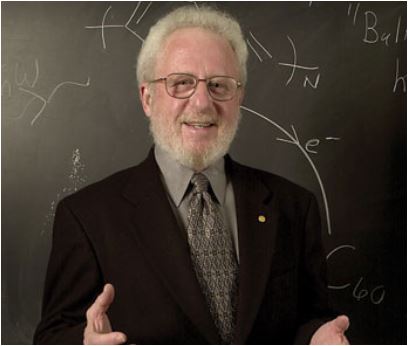Alan J. Heeger was awarded the Nobel Prize in Chemistry in 2000, along with Alan G. For the discovery and development of conductive polymers, MacDiarmid and Hideki Shirakawa. Their groundbreaking work revolutionized the field of organic electronics and led to the emergence of a new class of materials known as “plastic electronics” or “organic electronics.”

In the 1970s, Heeger, MacDiarmid, and Shirakawa independently discovered that certain organic materials could exhibit electrical conductivity similar to that of metals and semiconductors. This was a significant departure from the conventional understanding that organic compounds were generally insulators. They found that by doping certain polymers with specific chemical agents, they could alter their electronic properties and create materials with high electrical conductivity.
Their discovery opened up a whole new avenue for research and development in the field of electronics. Conductive polymers offered several advantages over traditional inorganic materials, such as being lightweight, flexible, and inexpensive to produce. These properties made them suitable for a wide range of applications, including flexible displays, sensors, solar cells, batteries, and electronic circuits.
Heeger, MacDiarmid, and Shirakawa’s work not only demonstrated the potential of conductive polymers in electronic devices but also provided valuable insights into the underlying principles of organic conductivity. They elucidated the concept of charge transport in these materials, paving the way for further advancements and the design of improved conductive polymers.
In 2000, Alan J. Heeger, Alan G. MacDiarmid, and Hideki Shirakawa received the Nobel Prize in Chemistry for their ground-breaking work on the production of conductive polymers. Their research had a profound impact on materials science and electronics, and it opened up new possibilities for the development of flexible, lightweight, and low-cost electronic devices.




